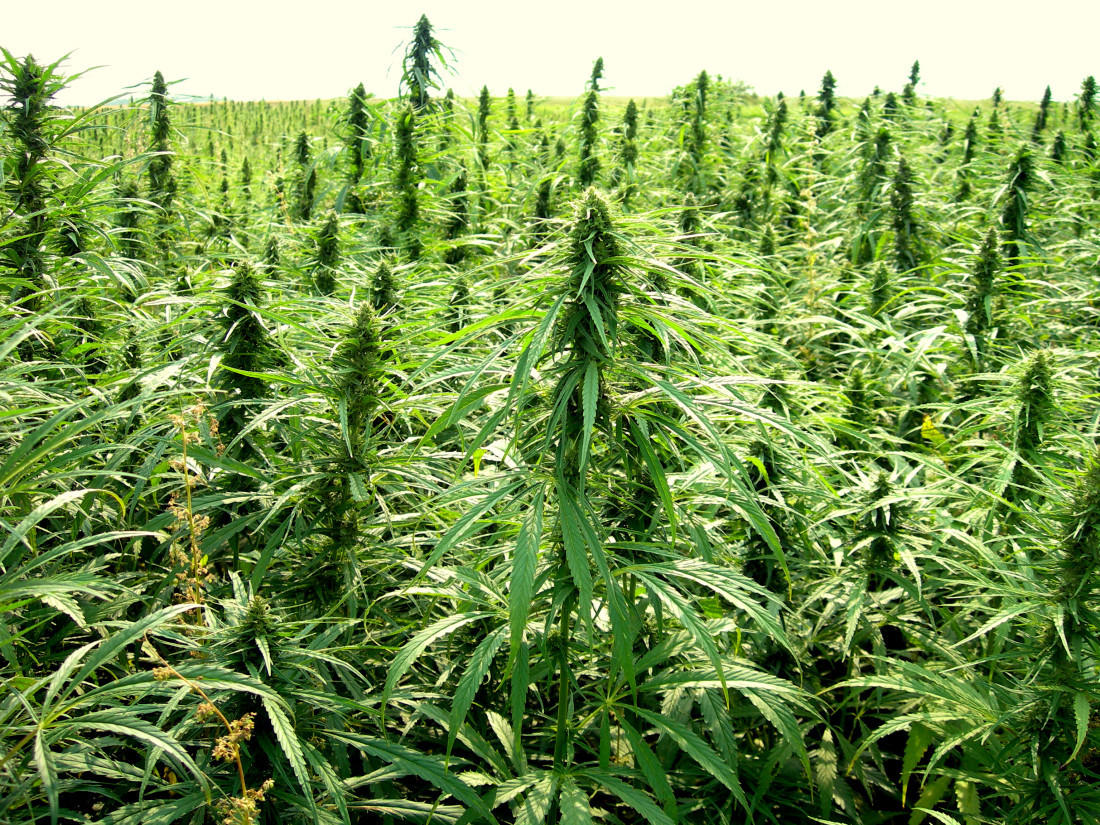Hemp hasn’t been grown legally in North Carolina since its prohibition was reinstated in the years following the end of World War II.
A number of local farmers hope that will soon change. “The way it’s shaking out, we may be one of the first, if not the first, entity to plant hemp seed or plants in this state legally in over seven decades,” says Brian Bullman of Asheville-based Carolina Hemp Co.
Bullman and his business partner Brian Morris are among eager applicants — including Sarah Yancey of Asheville’s Smiling Hara Tempeh — who hope to take part in the state’s first industrial hemp pilot program.
Hemp is a versatile source of fiber and oilseed currently grown as an agricultural commodity in more than 30 countries, according to the N.C. Department of Agriculture. For the past several years, state and federal legislators have been laying the groundwork for U.S. producers to grow the crop. In 2014, Congress passed legislation allowing certain states to grow industrial hemp as part of an agricultural pilot program for research purposes.
And in 2015, the N.C. General Assembly passed Senate Bill 313, which allowed for the formation of an Industrial Hemp Commission and declared “that it is in the best interest of the citizens of North Carolina to promote and encourage the development of an industrial hemp industry in the state in order to expand employment, promote economic activity, and provide opportunities to small farmers for an environmentally sustainable and profitable use of crop lands that might otherwise be lost to agricultural production.”
Getting growing
The nine-member IHC is tasked with establishing the state’s industrial hemp pilot program. The body’s efforts, however, have faced a major stumbling block: the U.S. Drug Enforcement Administration’s strict interpretation of hemp’s legality.
According to the IHC’s website, the DEA still considers industrial hemp seed a Schedule 1 narcotic substance. In order to import the seed into the state from another country, the DEA must issue a special import license. Furthermore, according to the North American Industrial Hemp Council, the DEA currently holds that industrial hemp plants and seeds can’t be shipped across state lines within the U.S.
IHC Commissioner Fen Rascoe voiced his belief that the DEA is intentionally delaying import permits to farmers to run out the clock on this year’s planting season at the body’s April 17 meeting.
“It’s clear to me. They’re [the DEA] just trying to delay it. We’ve got $200,000 worth of seed sitting in Italy that the commission paid for and it’s just gonna sit there. I mean, if [the DEA] said yes today, we’re not looking at getting [the seed] here in time to plant. We should be planting right now,” said Roscoe.
While growers who had planned to import seed from other countries haven’t received the needed import permit from the DEA, those who intended to get seed or plants from other states haven’t gotten the nod from the IHC. That’s because the state commission has hesitated to directly challenge the DEA’s position on interstate transport of the growing stock.
Last-ditch effort
Considering that it’s almost May and no North Carolina farmers actually have seeds in hand, prospects appear to be dimming for a successful launch of the hemp pilot program this year.
But Bullman says he and Morris believe their sourcing plans put them in a unique position. “Our program for this particular grow operation is to bring in live cultivars, meaning actual live hemp plants,” says Bullman. “Anybody looking to bring in live cultivars still has an opportunity to grow hemp, anytime through the year really, because you can bring them in and plant them in a greenhouse or indoor operation if need be.”
At the April 17 meeting, commissioners held a closed session to hear counsel from the body’s attorney. Upon returning to the public forum, Rascoe moved to request a temporary restraining order against the DEA’s delay of import permits for hemp seeds and the agency’s objections to interstate seed and plant transfer.
After commission Chair Tom Melton called for a vote and the motion passed in favor of litigation against the DEA, he noted that the next step would be to contact the state attorney general.
If the gambit works, says Bullman, there’s still hope for the current growing season. “So long as they get that done in time, which for us, really means getting something done in the next couple of weeks, then we might be in good shape,” he explains. If Carolina Hemp Co. can ship the seedlings it’s hoping to purchase from Colorado, and get them in the ground no later than mid-May, he says, “then we’ll be OK.”
But for some farmers it’s already too late. “Some of them have already decided not to do it this year,” says Bullman.
“I wrote a blog post on the subject urging people to call the attorney general’s office and insist that they expedite this matter in any way they can, because ultimately it’s going to be up to them to make it happen,” says Bullman.




DEA holdup…… hummm…. that would be the work of none other than Jeff Sessions… the pinhead appointed by TheRump….. any questions?
It’s all about the oil and DuPont lobbyists. Hemp is the best renewable resource to grow, it doesn’t deplete the soil, it can be used for all sorts of amazing products from car bodies to clothes, and if you hid THC pot plants in the middle of a hemp field, the cross pollination would wipe out the THC so all this reluctance has nothing to do with “narcotics” and everything to do with oil and big corporate influence. If hemp could be grown in our rural communities, poverty would decrease and small towns would begin to thrive again.
As hemp oil is so rich in essential fatty acids, specifically omega-3’s and omega-6’s, it is an important dietary addition to help reduce cholesterol levels. for maintaining good health.